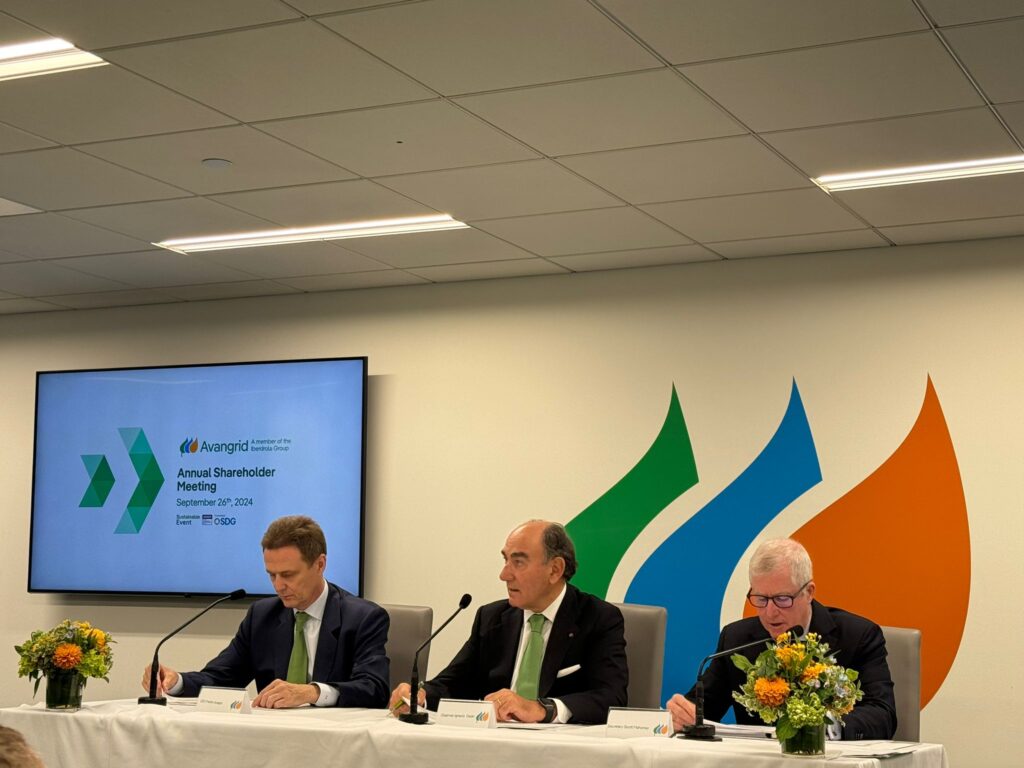Avangrid’s shareholders have approved Iberdrola’s acquisition of the remaining 18.4 per cent of Avangrid’s capital through a merger operation.

The acquisition was supported by approximately 99 per cent of the votes cast. Excluding the votes of Iberdrola and QIA (Iberdrola’s main shareholder), the support among other voting shareholders reached approximately 93 per cent.
First announced in March, the acquisition will result in Avangrid’s delisting from the NYSE once regulatory authorizations are received and the transaction is closed. Iberdrola will pay USD 2.55 billion (about EUR 2.3 billion).
The Federal Energy Regulatory Commission (FERC) and Maine Public Utilities Commission have approved the merger, which is expected to close by year-end, pending approval from the New York Public Service Commission.
Iberdrola has been active in the United States for over 20 years. Nearly a decade ago, it merged its North American subsidiary with UIL Holdings, forming Avangrid, listed on the NYSE since then. Avangrid has USD 46 billion in assets, distributing electricity to 7 million people in New York, Connecticut, Maine, and Massachusetts and has 8,700 MW of renewable energy capacity across 24 states with 8,000 employees.
Avangrid plans USD 30 billion in investments by 2030 in transmission and distribution grids, offshore wind, solar PV, and onshore wind, including the New England 1 offshore wind farm contract award.
The transaction will provide Avangrid with better access to financial resources for these investments. Ignacio Galán, Iberdrola’s executive chairman, stated, “The operation aligns with our strategy of investing in networks in countries with high credit ratings, such as the United States. Avangrid will have all necessary resources to continue growing in transmission and distribution grid networks and renewable technologies, such as offshore wind.”

ADVERTISE ON OFFSHOREWIND.BIZ
Get in front of your target audience in one move! OffshoreWIND.biz is read by thousands of offshore wind professionals daily.
Follow offshoreWIND.biz on:
Original Story at www.offshorewind.biz
